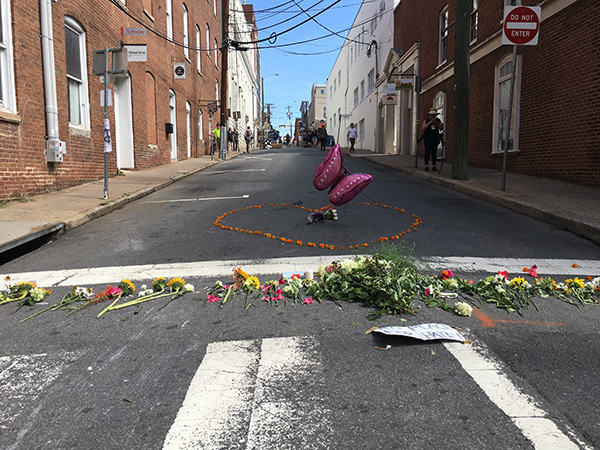Her Own Private Charlottesville: Laura Smith on growing up in the rural South and attending the University of Virginia

As a University of Virginia alumna, Smith is familiar with Charlottesville, the community where a black Dodge Charger operated by a white supremacist plowed into a crowd of counter demonstrators on a deadly August day.
“I was surprised, but not at the same time not really surprised,” she said in a September interview in her Horace Mann office. The scenes coming out of Charlottesville rang true for Smith, who is the product of a part of rural Virginia where the 19th century conflict that separated the nation is sometimes called the “War of Northern Aggression.”
"Charlottesville flew me back to my own childhood and my acculturation within that worldview.”
“It connected a lot of dots for me,” Smith told Kitty Kelly Epstein, a host on KPFA in Berkeley.
What historians call “Southern Lost Cause” ideology, Smith reflected, is analogous to being “sort of raised in a cult according to which the Civil War was not about slavery but about state’s rights, where Robert E. Lee was one of the most heroic, gentle, scholarly, and saintly Americans that ever lived, and where Southerners never really approved of slavery …Charlottesville flew me back to my own childhood and my acculturation within that worldview.”
Smith sees a correlation between the demonstrations in Charlottesville and the thrust of the article she published this past summer addressing white instructors’ ability to speak and teach about race and racism.
“Both require us to do a lot of thinking about whiteness and our own accountability, and to translate those into action,” she said in her office interview.
Published Wednesday, Dec 20, 2017